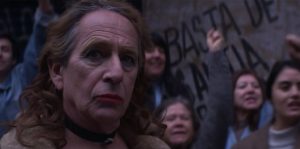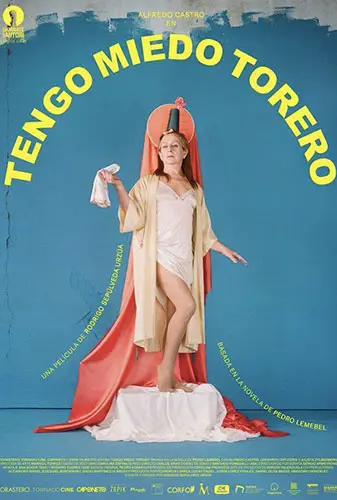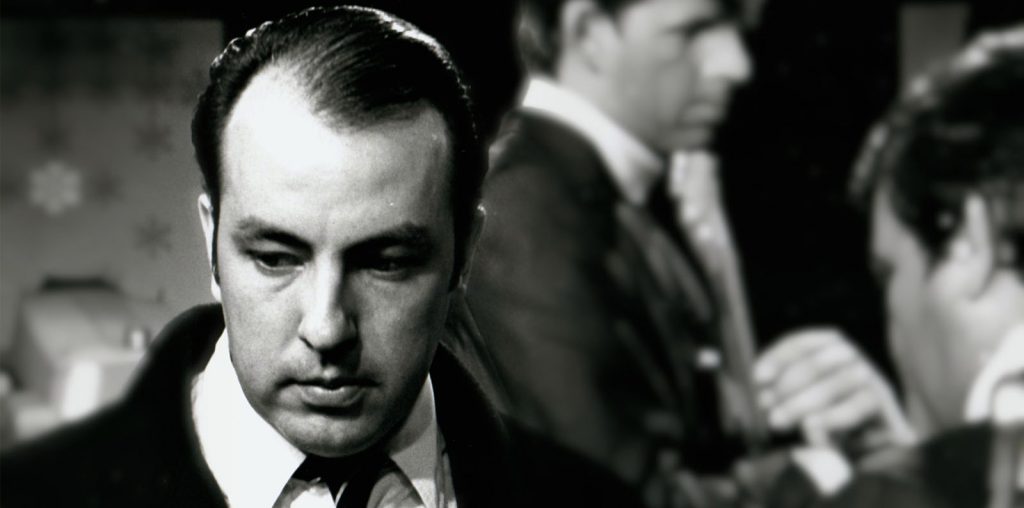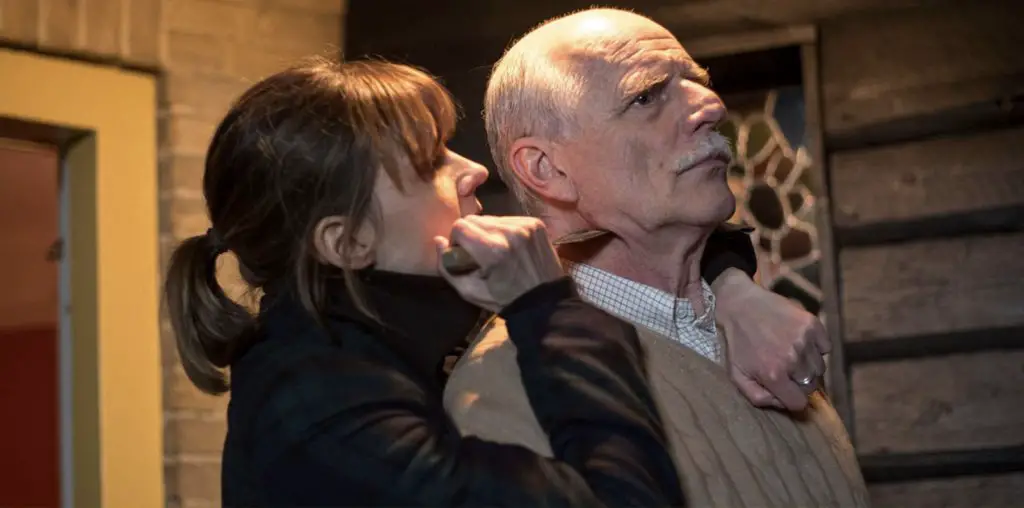
The year is 1986. The place is Santiago, Chile. Augusto Pinochet is the General, politician, and political leader of a country that has grown weary of his heavy-handed ways. An arm of the communist party, called the Manuel Rodríguez Patriotic Front, attempts to assassinate Pinochet. Writer/Director Rodrigo Sepúlveda has created a beautiful, melancholy screen adaptation of Pedro Lemebel’s controversial novel Tengo Miedo Torero (My Tender Matador).
In one of Santiago’s poor neighborhoods, a gay cross-dresser who calls herself The Queen of the Corner (Alfredo Castro) ekes out a living making tablecloths and linens for the wealthy. She listens to Bolero music in her dingy flat to drown out the sounds of civil unrest and gunplay.
When a drag show, that The Queen is attending, is raided by police, performers are shot dead, and the audience scatters with police in pursuit. The Queen is saved from arrest by a young man who sweeps her off the street and pretends they are together. The Queen is immediately smitten with the man who says his name is Carlos (Leonardo Ortizgris). Carlos is an active member of the Manuel Rodríguez Patriotic Front, and after befriending The Queen, she uses her apartment to store mysterious crates and hold group meetings. She is drawn to him, her attraction is immediate and intense, while his interest in her seems more tentative.

“…to further his cause as he drags her into his political orbit, putting her in great danger.”
The Queen is an aging homosexual in a place where simply existing as herself is a revolutionary act and a crime. Carlos has genuine affection for her but also takes advantage of her feelings for him to further his cause as he drags her into his political orbit, putting her in great danger. She seems oblivious to this risk, as she is besotted with the handsome young man.
South American history is a complex tapestry of oppression and revolution, a seemingly endless parade of dictators and passionate freedom-fighters. Che Guevara is a hero to most ordinary people there because of his journeys crisscrossing the continent to speak with the poor people in the working class. Guerrilla fighting against oppressive regimes made him a hero of the people. His insurgent spirit drives the urge for autonomy and freedom in that part of the world, and Che is the face of that aspiration. Carlos is even styled to look like Che in the film, a brilliant choice to ground the character. While the historical statistics, names, and places become a numbing litany of violence, revolt, death, and new regimes, human stories like Tengo Miedo Torero put the viewer in a place like Santiago during this time and give us a very real sense of what it was like to live through it.
The added element of The Queen being gay and living as a woman also pulls back the curtain on a seldom-considered experience in Latin-America. LGBTQ people were like vermin to the authority, and in fact, to the culture at large. In one powerful scene, The Queen walks through a police line holding protestors back at gunpoint, while she’s carrying materials to deliver for the revolutionary front. She knows full well that she’s invisible to them, no more worthy of their regard than a pigeon.
There’s beauty in the breakdown, but also sadness, and so much misery in the human cost of political ideals wrapped around the inevitable power grab. The Queen makes decisions for love that put her squarely in the middle of conflicting forces far beyond her control, and her actions exact a cost that she may not be willing to pay.

"…a beautiful, melancholy screen adaptation of Pedro Lemebel’s controversial novel"


